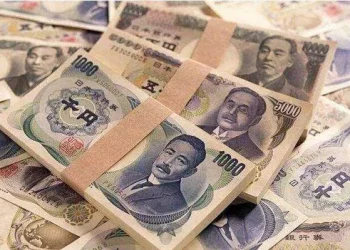China’s onshore yuan traders are demonstrating more confidence than their offshore counterparts regarding the stability of the currency as the U.S. presidential election approaches. Recent data indicates that the one-month implied volatility for the onshore yuan is trading at its largest discount to the offshore yuan since 2022. This disparity suggests that local traders believe the People’s Bank of China (PBOC) will effectively manage fluctuations, even in the event of a Donald Trump victory, who has indicated intentions to raise tariffs on Chinese goods.
“Onshore traders feel reassured because the PBOC will act as a backstop for any volatility,” noted Mingze Wu, a currency trader at StoneX Group Inc. in Singapore. He contrasted this with the offshore yuan’s situation, stating, “That’s the difference between having a security blanket versus not having one.”
Both onshore and offshore yuan have faced downward pressure this month due to market adjustments regarding Federal Reserve interest rate cuts and the dollar‘s strength amid speculation of a Trump victory. The onshore yuan has depreciated by 1.2% in October, while the offshore counterpart has fallen by 1.6%.
The onshore yuan operates within a trading range centered on the PBOC’s daily fixing, making it easier for authorities to regulate. In contrast, the offshore yuan is more vulnerable to market volatility, particularly if negative sentiment escalates.
PBOC Governor Pan Gongsheng affirmed last month that the central bank aims to prevent one-sided expectations in the currency market and to avoid significant fluctuations in the exchange rate. He reiterated that the yuan possesses a strong foundation for stability.
Looking ahead, analysts suggest that the central bank may intervene if the yuan continues to weaken. Fiona Lim, a senior currency strategist at Malayan Banking Bhd. in Singapore, indicated that should the dollar-yuan pair rise sharply, the PBOC might employ a counter-cyclical adjustment factor in its daily fixing. This adjustment is a tool the PBOC uses to guide the currency fixing during certain periods.
Concerns surrounding a potential Trump presidency are not unfounded. During his previous term, policies such as tariffs on Chinese exports contributed to the yuan reaching its lowest level in a decade in August 2019.
Some market participants are seeking to capitalize on the rising option prices associated with the yuan. Current implied volatility for three-month and one-year options is lower than that for the one-month gauge, indicating expectations that currency fluctuations will likely subside shortly after the U.S. election on November 5.
Should Trump win and the yuan begin to decline, economist Xiaojia Zhi at Credit Agricole CIB in Hong Kong remarked that the PBOC would likely intervene to manage market expectations swiftly rather than allowing the yuan to freefall or depreciate as a countermeasure to U.S. tariffs.
Related Topics:

























